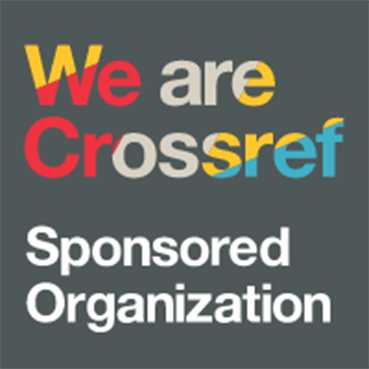Strategi Dai untuk Meningkatkan Minat Belajar dan Pemahaman Pendidikan Agama Islam di Majelis Taklim Baiturrahman Kota Lhokseumawe
Main Article Content
Muhammad Husaini
Musdar Musdar
Syahrizal Syahrizal
Husaini Husaini
This research aims to explore the strategies employed by the preacher (Dai) to enhance interest and understanding in Islamic Religious Education within small groups, particularly at the Majelis Taklim Muslimat Baiturrahman in Lhokseumawe. The study encompasses efforts to comprehend the dynamics of small groups and seeks holistic and diverse approaches to religious education. Employing a qualitative case study approach, the research utilizes participatory observation techniques, semi-structured interviews, and document analysis. Data is collected from members of the study group and religious teachers to gain a profound understanding of the strategies employed. Data analysis employs an interactive qualitative approach to detail comprehensive findings. The research findings indicate that religious teachers actively employ three main strategies: 1) Interactive discussions create a collaborative environment that enhances active participation and enriches the learning experience. 2) Inspirational lectures elicit emotional stimulation by linking the subject matter to everyday life. 3) Question-and-answer approaches stimulate critical thinking and responsiveness to individual learning needs. The impacts of these strategies include increased interest in learning, the development of a deeper understanding, and the formation of a sense of unity among participants. Based on the research findings, it is recommended that religious teachers undergo training in implementing innovative strategies that can better adapt to the dynamics of small groups. Additionally, the results offer guidance for the development of instructional strategies focusing on participant engagement and the relevance of religious concepts in everyday life.
Arikunto, S. (2019). Prosedur Penelitian: Suatu Pendekatan Praktik. Rineka Cipta.
Astuti, D., & Hasibuan, N. (2023). Peran Nabi Muhammad sebagai Guru: Role Model dan Motivator. AHDÃF: Jurnal Pendidikan Agama Islam, 1(2), 123–132. https://doi.org/https://doi.org/10.47766/ahdf.v1i2.1655.
Basori, B. (2020). Inovasi Metode Pembelajaran Pendidikan Agama Islam di Sekolah dan Madrasah. Kreativitas: Jurnal Ilmiah Pendidikan Islam, 9(2), 122–131. https://ojs.diniyah.ac.id/index.php/Kreatifitas/article/view/189.
Brown, G., & Desforges, C. (2013). Piaget’s theory. Routledge.
Daswati, D., & Fitriani, W. (2023). Studi Analisis Psikologi Belajar Pendidikan Agama Islam Berdasarkan Kreativitas, Minat, Bakat, dan Intelegensi. ITQAN: Jurnal Ilmu-Ilmu Kependidikan, 14(1), 67–82. https://doi.org/10.47766/itqan.v13i2.811.
Gardner, H. (1993). Multiple intelligences: The theory in practice. Basic books.
Gardner, H., & Moran, S. (2006). The Science of Multiple Intelligences Theory: A Response to Lynn Waterhouse. Educational Psychologist, 41(4), 227–232. https://doi.org/10.1207/s15326985ep4104_2.
Ihsan, M. A. (2018). Dakwah dan Perbahan Sosial Masyarakat di Kota Palu. ISTIQRA, 5(2), 245–271. https://doi.org/10.24239/ist.v5i2.261.
Kadi, T. (2023). Optimasi Peran Guru Pendidikan Agama Islam dalam Pembelajaran Fikih di SMP: Dampaknya terhadap Pemahaman Agama. ITQAN: Jurnal Ilmu-Ilmu Kependidikan, 14(2), 123–134. https://doi.org/10.47766/itqan.v14i2.1974.
Kismatun, K. (2021). Contextual Teaching and Learning dalam Pendidikan Agama Islam. TEACHER : Jurnal Inovasi Karya Ilmiah Guru, 1(2), 123–133. https://doi.org/10.51878/teacher.v1i2.718.
Nurulita, N. (2021). Penyuluhan Agama di Era Digital. Lekkas.
Pimay, A., & Savitri, F. M. (2021). Dinamika Dakwah Islam di Era Modern. Jurnal Ilmu Dakwah, 41(1), 43–55. https://doi.org/10.21580/jid.v41.1.7847.
Putra, A. A. (2017). Konsep Pendidikan Agama Islam Perspektif Imam Al-Ghazali. Jurnal Pendidikan Agama Islam Al-Thariqah, 1(1), 41–54. https://doi.org/10.25299/althariqah.2016.vol1(1).617.
Rosyada, D. (2020). Penelitian Kualitatif untuk Ilmu Pendidikan. Prenada Media.
Salabi, A. S. (2021). Konstruksi Keilmuan Islam (Studi Pemikiran Ibnu Rusyd tentang Ontologi dan Epistimologi). ITQAN: Jurnal Ilmu-Ilmu Kependidikan, 12(1), 47–66. https://doi.org/10.47766/itqan.v12i1.188.
Sappaile, B. I., Ahmad, Z., Hita, I. P. A. D., Razali, G., Dewi, R. D. D. L. P., & Punggeti, R. N. (2023). Model Pembelajaran Kooperatif: Apakah efektif untuk Meningkatkan Motivasi Belajar Peserta Didik? Journal on Education, 6(1), 6261–6269. https://doi.org/https://doi.org/10.31004/joe.v6i1.3830.
Sugiyono. (2015). Metode Penelitian & Pengembangan, untuk Bidang Pendidikan, Manajemen, Sosial, & Teknik. Alfabeta.
Sugiyono. (2020). Metode Penelitian Kualitatif. Alfabeta.
Ulum, A. C., & Haramain, M. (2017). Eksistensi Dakwah dalam Merespon Pluralisme. KOMUNIDA: MEDIA KOMUNIKASI DAN DAKWAH, 7(2), 124–138. https://doi.org/10.35905/komunida.v7i2.475.
Wahid, A. (2019). Gagasan Dakwah: Pendekatan Komunikasi antarbudaya. Prenada Media.
Wibowo, H. (2020). Pengantar Teori-teori Belajar dan Model-model Pembelajaran. Puri Cipta Media.








